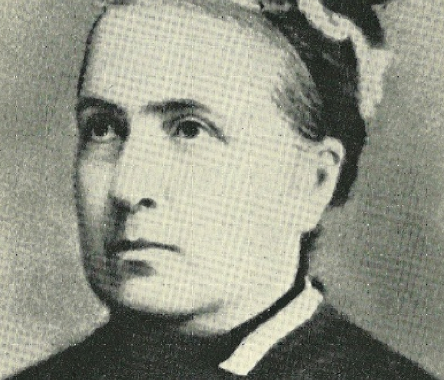
Miss Irby, Bosnian heroine
Sarajevo, September 15, 1911: Flags flew at half-mast and black banners hung from windows and balconies as a solemn procession of students and teachers from schools across the city, joined by the English Consul and other representatives of the English community, government officials, priests, foreign representatives and prominent citizens made its way to the Orthodox Cathedral, decked with flowers from all over Bosnia and beyond.
Muslims, Orthodox, Catholics and Protestants crowded into the cathedral in the city’s centre for the funeral honouring a life ‘lived in self-devotion for the general good.’
A short distance from the cathedral today, a green and white enamel street sign, reading Mis Irbina Ulica (Miss Irby Street), continues to remind passersby of a national heroine who forsook the noble privileges of her aristocratic British upbringing to feed, house and educate poor folk in the Balkans.
William Gladstone, British Prime Minister, wrote of Miss Irby and her fellow workers: ‘I have never witnessed a nobler or simpler example of entire self-devotion to the cause of good. They have voluntarily sacrificed whatever attractions are the found in the gilded saloons of London to devote themselves to unceasing and wearying labour.’
I learned about Miss Irby this past weekend while speaking at a conference of student workers in Croatia. A young man named Josh Irby told me of his discovery of this remarkable woman who turned out to be a distant relative. Josh was preparing to move to Sarajevo with his wife and young children, leaving his comfortable lifestyle in America behind. After a number of setbacks, he began to wonder why he was making a move which seemed foolish to many friends and family.
Adventurous
In the midst of his questioning, he received an email from a friend in Bosnia telling him about this Miss Irby and asking if he might be related. Josh was amazed to discover her story, and the development of her love and passion for the peoples of the Balkans, particularly the Bosnians. Her willingness to choose a life of servanthood in spite of known and unknown dangers, over a comfortable and secure lifestyle among London’s social elite, confirmed for Josh the rightness of the choice he and his wife were making. He realised that on earlier trips to Sarajevo, he had unknowingly walked past the street sign with Miss Irby’s name on it many times but never made any connection!
Adeline Paulina Irby was born on 19 December 1831, the daughter of a British rear admiral and a wealthy banker’s daughter. Her father supported the abolitionist efforts of his Norfolk neighbour, Sir Thomas Fowell Buxton, who succeeded William Wilberforce in leading the movement to abolish slavery in Britain. While still in her twenties, she and a friend embarked on an adventurous trip by cart over the Carpathian mountains, staying in roadside inns on the way. Arrested on one occasion as Russian spies and Panslavistic sympathisers, Adeline and her friend Georgina made it their aim, once released, to find out what exactly a Panslavist was. Their travels exposed them to the poor condition of the lower-class raja, often suppressed by taxation and injustice from local officials, and by the lack of education available to children.
So the two young women decided to open a school for girls. They chose Sarajevo as a location and in January 1870, the newly constructed school for girls opened to serve the children of Sarajevo. Two years later, poor health forced Georgina to return to England. Adeline continued her work with a new English compatriot Priscilla Johnston, a member of the Buxton family.
Must-read
With Florence Nightingale’s help, Adeline raised funds through The Times for more schools for refugee children across the region. By the summer of 1877, twenty schools had been established; twelve hundred children were taught, fed and clothed; and twenty-eight orphans were housed in boarding homes. In total, from 1 October 1875 to 13 June 1879, Adeline and Priscilla distributed £41,000 (equivalent to over $3 million today) in provisions, housing, and education, saving countless refugees from certain death.
When Priscilla returned to England in 1885, Adeline remained. For the next twenty-five years she continued her work, funding much of the work from her own pocket, providing education as well as a moral and cultural foundation for impoverished girls.
For anyone interested in the Balkans, Josh’s book, Meeting Miss Irby, is a must-read, faith-building account of an evangelical woman who earned the respect and love of Muslims, Orthodox and Catholic across the region. (Available via www.missirby.com or www.amazon.com).
Till next week,
Jeff Fountain

This Post Has 0 Comments